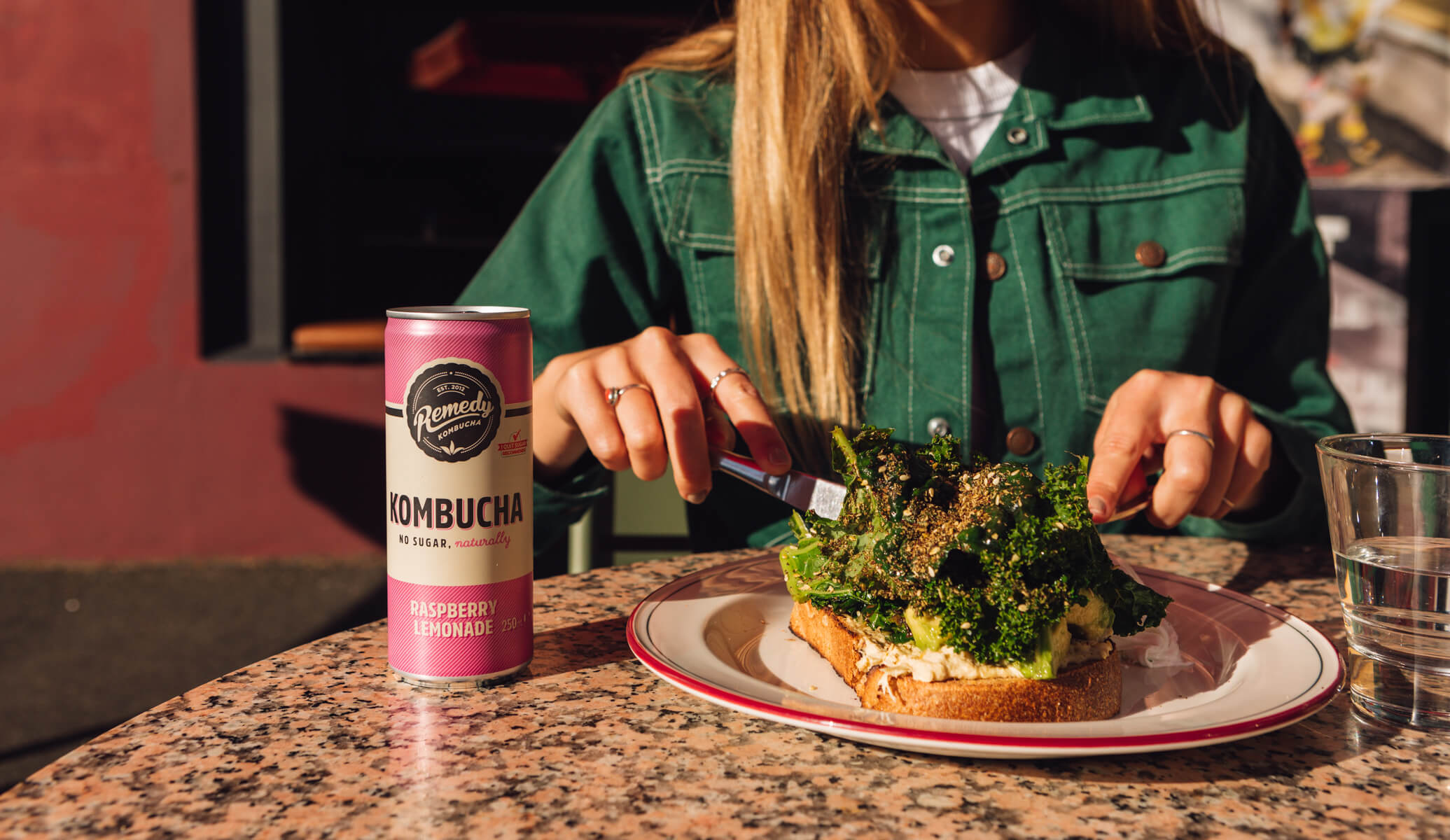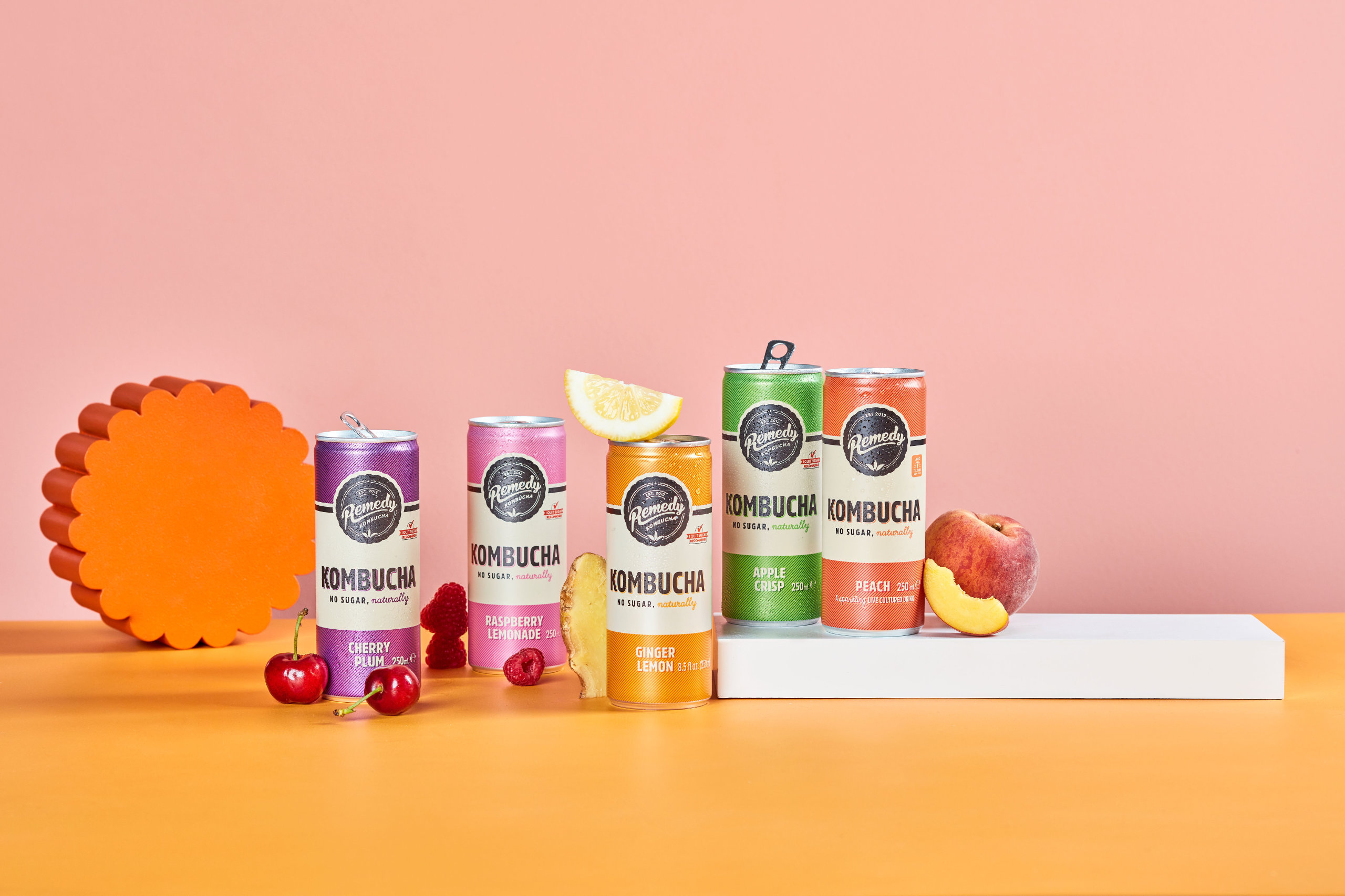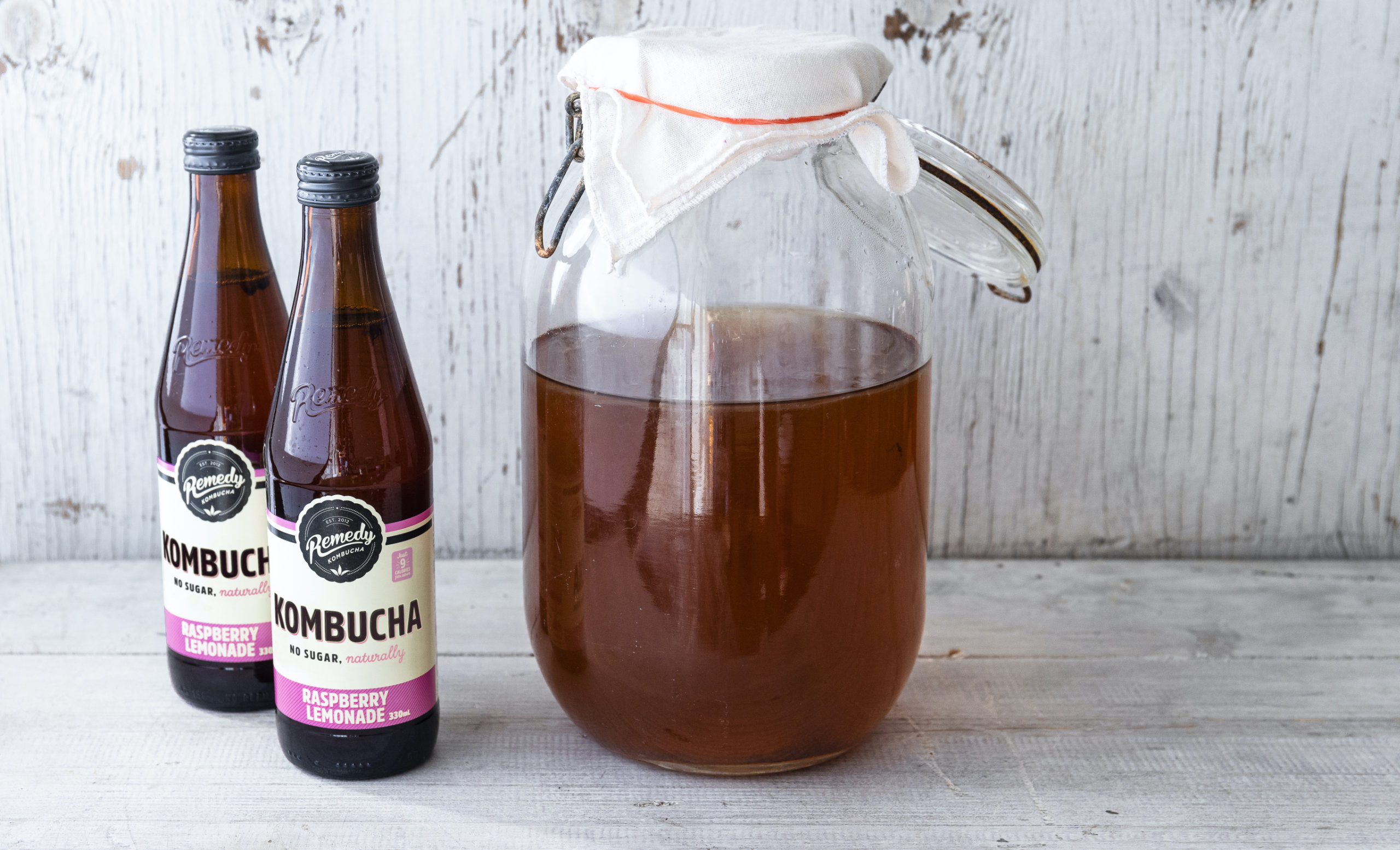We love to sing the praises of fermented foods and drinks around here, but did you know that traditionally fermented food/drink is also a hot topic in the science world right about now? Yes, siree. Researchers have been studying the link between consuming fermented foods and drinks (including kombucha) and the potential positive effect it has on overall gut health.
The New York Times (aka the big dogs) recently covered findings from a study carried out by researchers from Stanford University which were published in the scientific journal The Cell, that shows us fermenting-nerds are onto something, revealing that “foods like yogurt, kimchi, sauerkraut and kombucha increased the diversity of gut microbes and led to lower levels of inflammation”.
You can read the full article here but for those who need the TLDR version, we’ve put together our own little summary below:
WHAT DID THE SCIENTISTS WANNA KNOW?
They wanted to see what changes happen in our gut when we amp up our intake of fermented foods versus how our gut reacts to a diet fuller in fibre-rich foods.
HOW DID THEY GO ABOUT IT?
The researchers recruited 36 healthy adults who were randomly split into two groups. One went from having almost no fermented food or drink in their diet to eating about six servings a day (let’s call them our Fermented Friends). The other group had their usual fibre intake doubled (we’ve dubbed them the Fibre Fans).
SO WHAT THE HECK HAPPENED?
At the end of the 10-week study, our Fermented Friends showed marked reductions in inflammatory markers along with increased diversity in their gut microbes. The Fibre Fans on the other hand, did not show either of these things.
WHAT’S SO GOOD ABOUT THIS ANYWAY?
Basically, our Fermented Friends showed a reduction in certain inflammatory compounds that are often elevated in people living with diseases like Type 2 Diabetes and Rheumatoid Arthritis. The Fibre Fans however did not show a similar decrease in the same compounds. But why should you care?
Because the reduction in our fermented friends’ inflammatory markers corresponded to a change in their gut; consuming more fermented food and drinks meant a greater number and a much wider variety of microbial species started blooming!
More diverse gut microbiome = lower rates of Type 2 Diabetes, Metabolic Disease, Rheumatoid Arthritis and obesity (boo ya!).
HANG ON, IS FIBRE NO GOOD?
Have no fear! High-fibre foods are still A-OK! Health professionals still agree that getting a good amount of fibre in your diet has a world of benefits including reducing the risk of developing chronic diseases and helping to keep you regular (TMI we know).
But wait, there’s more. The article revealed that it might be the case that Fibre Fans with “low microbiome diversity may have lacked the right microbes to digest all the fibre they consumed”. This is because those who started out with higher levels of gut diversity showed a reduction in inflammation whereas those who had low diversity experienced increased inflammation in line with their fibre increase.
We’re no scientists but it looks like researchers are speculating that increasing your intake of fermented foods (which can increase gut diversity) may actually help you to better digest fibre. Our fermented friends and fibre fans can finally come together (New BFFS!?).
*PSSST WHAT EVEN ARE FERMENTED FOOD & DRINKS?
Asking for a friend. No judgement here. Fermented foods are those that have undergone a process where a bacteria or yeast break down certain components of a food to produce live microorganisms and other by-products such as healthy organic and lactic acids and vitamins… along with delicious flavours. Kombucha happens to be one of these.
SO HOW MUCH FERMENTED GOODNESS SHOULD I BE EATING & DRINKING?
OK. We’ll admit. The scientists got a little fermentation-happy with this one. Participants went from consuming no fermented products to 6 servings a day (but it’s not as much as it sounds like, we swear).
Their sample diet of 6 servings:
Breakfast: One cup of yogurt for breakfast
Lunch: 475ml bottle of kombucha
Dinner: 1 cup of kimchi
Remedy’s Sample Diet:
Breakfast: Remedy Ginger Lemon Booch to start the day
Lunch: Remedy Raspberry Lemonade Kombucha to wash the food down
Afternoon tea: Remedy Cola kombucha for the 3pm pick me up
Dinner: a sprinkle of kimchi (and maybe another Remedy)
Just joking (sort of)! But seriously, everyone is different so the amount of kombucha and other fermented products you wish to consume is totally up to you and how it makes you feel, but the insight from this new research certainly suggests getting a good range of traditionally fermented foods and drinks into your diet can only be a good thing. At Remedy HQ some of us are guilty of drinking up to 5 Remedies a day and as it turns out, this study showed us that our addiction is totally acceptable (take that Mum), especially if we throw a little yoghurt on our fruit salad and some sauerkraut on our sanger.
How do you know Remedy is the real deal?
Aside from the fact that we’ve self-claimed the title of kombucha connoisseurs, we’re also committed to making it right. We pride ourselves on being the real deal – brewing our kombucha the same way it has been for thousands of years. We’re talking small-batch, 30-day long-aged brews starting with a descendent of the very first batch our founders Sarah and Emmet made on their kitchen counter. You can rest assured knowing you’re getting a kombucha that is chock-full of live cultures, organic acids and antioxidants (and you won’t have to carry a jar of kimchi everywhere). Click here to find out more about how we make our kombucha the old school way.
How many live cultures exactly you ask?
Our drinks sit at a mighty minimum of 100 million live cultures per 100ml of Remedy (for real!), we’re raw, unpasteurised and contain no nasties – all naturale baby! How do we know our live cultures are swimming? Because we test every batch to make sure of it!



